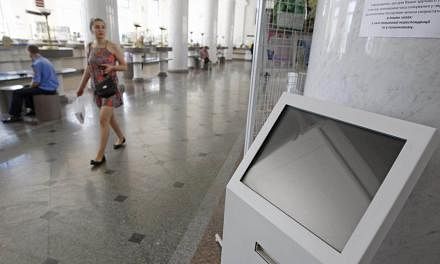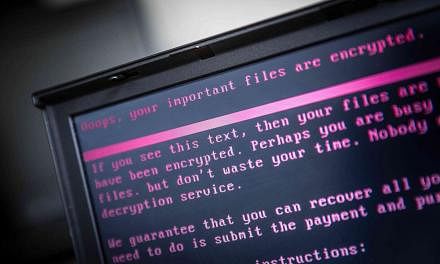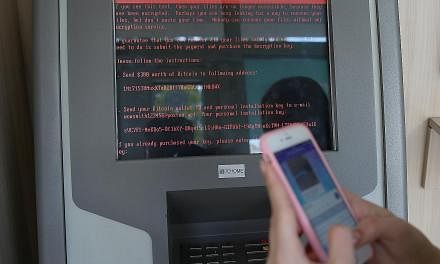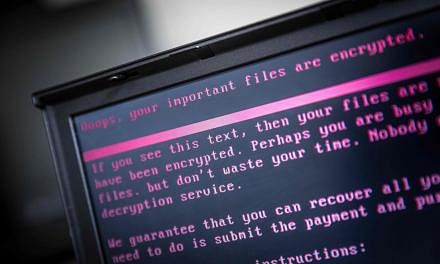Technical staff were pulling overtime shifts across the entire weekend and yesterday, as organisations in Singapore scrambled to limit the spread of ransomware that disrupted operations at hospitals and factories around the world.
An IT service provider told The Straits Times that many of its clients in Singapore were scrambling to apply a software patch to fix a known flaw in their Microsoft Windows systems which was exploited by the WannaCry malware that emerged last Friday.
The patch was released in March, but many companies did not fix the flaw before the attack.
"Many Singapore companies were still patching their machines on Monday morning," said the vendor, who declined to be named.
Meanwhile, critical services in healthcare, transport, telecommunications, finance and retail in Singapore emerged unscathed, the Cyber Security Agency of Singapore said late yesterday.
Elsewhere, hundreds of thousands of computers in nearly 150 countries have been infected, prompting security experts to warn organisations not to let down their guard as variants of the bug could develop.
Mr Steve Ledzian, senior director of systems engineering at security systems specialist FireEye, said that organisations are "never truly out of the woods", even if they have addressed the threat.
"The threat landscape is constantly changing as new variants of ransomware evolve," he said.
Mr Tee Chun Meng, head of information security at the Singapore Exchange, said the bourse is working closely with its vendors "to ensure our controls and defences are kept up to date to handle new variants of the ransomware".
A spokesman for Maybank said that it is "on heightened alert" and keeping tabs on the latest developments to adjust its defence posture if needed.
The only victim in Singapore that has been reported so far is MediaOnline, which supplies digital signage to malls such as Tiong Bahru Plaza and White Sands.
Ms Karen Siow, general manager of Tiong Bahru Plaza, Liang Court and Hougang Mall at AsiaMalls, said: "There is no other anticipated impact from this malware as the digital directory systems run on a separate network from the rest of the corporate networks of AsiaMalls."
Experts said that Singapore's efforts to delink computers of public servants from the Internet may not fully filter out WannaCry.
The virus enters systems in two ways: When users click on a bogus link or when they open an e-mail attachment. Separating machines from the Internet is effective for situations where users click on bogus links. But if users open an infected e-mail attachment, the worm may still spread to multiple machines via the intranet.
Experts stressed that computer users must be wary of what is sent to them through e-mail.
"Continual user education needs to be in place to help identify phishing attacks," said Mr Jerry Tng, vice-president of IT management software provider Ivanti in the Asia-Pacific.
•Additional reporting by Jacqueline Woo, Rachael Boon and Melissa Lin














